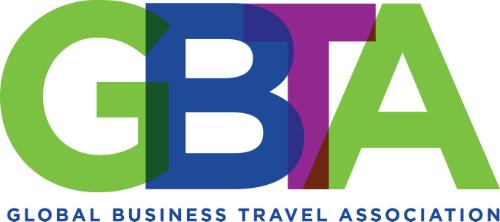
Business travel is coming back but—according to a new study from The Global Business Travel Association (GBTA), the world’s largest business travel association, and made possible by travel and expense technology company, Serko—it might not be business-as-usual post-pandemic for corporate travel managers, programs, and policies. How will the pandemic and business travel recovery change corporate travel programs going forward? Are pandemic-related changes to company travel policies likely to remain permanent? Will the business travel ecosystem and travel programs in 2022 look vastly different than they did in pre-pandemic 2019?
 GBTA CEO Suzanne Neufang
GBTA CEO Suzanne Neufang
These topics are explored in the new report from the association, The Return to Business Travel: A New Paradigm on the Evolution of Buyers and Stakeholders Post-Covid. Based on survey responses from US and Canadian travel managers, the study outlines how the return of business travel might look post-pandemic from the lens of corporate travel managers and especially for managed online business travel bookings.
“Now is the moment that corporate travel managers are moving from triage and temporary solutions that may have been required to address business travel during the pandemic, to a longer range, more considered view based on new requirements—from technologies to policies to processes—that will be the basis for the next chapter and best outcomes for companies, business travelers, and managed business travel programs,” said Serko CMO Nick Whitehead.
“When the pandemic brought almost all travel to a halt there was a recognition of the important role of business travel in helping companies grow their revenue, workforces, and share prices. But as we get back to business travel, the landscape has changed. Travel managers are actively embracing evolution to determine what will be needed next,” said GBTA CEO Suzanne Neufang.
Survey highlights:
- Temporary tightening of travel policies? Seven in ten (71 percent) travel managers report their company’s booking-related travel policies have become stricter due to the pandemic—however, six in ten (61 percent) of those expect the changes to be temporary.
- Uptick in assisted bookings. Booking business travel via an online booking tool (OBT) has declined during the pandemic, forcing a greater reliance on agent-assisted bookings. Pre-pandemic, only 9 percent of travel managers said their company had a high-touch model where travelers typically made “managed” bookings directly with a travel agent. Now, one in five (20 percent) say their company has a high-touch model.
- To restore confidence in moving bookings back online, travel managers most pointed to the need for key features such as integrated destination health and safety information (85 percent), automatic ticket credits (77 percent), contextual policy applications (57 percent), and visually highlighted hotels that meet COVID safety protocols (53 percent).
- Approvals go manual and multiple. In the current environment, travel programs often require manual approval of business trips by multiple people. Of those that do, two in five (42 percent) respondents say most of their manual processing requires multiple approvers (e.g., employee’s manager and HR employee).
- Reeling bookings back in. Addressing leakage (i.e., business travel bookings made outside a company’s preferred channels) has become an even greater priority. Half of travel managers (46 percent) say reducing leakage is a “greater” or “much greater” priority than before the pandemic or equal priority (40 percent) today as before the pandemic. Travel managers identified OBT features that would help reduce leakage including rich airfare information and imagery and New Distribution Capability-enabled bookings.
- When it comes to OBT innovation, travel managers are seeking to streamline the booking process and ensure alignment with corporate policies and goals. OBT features of most interest include personalized itinerary recommendations (78 percent) and conversational chatbot booking (73 percent) using intelligent technology (i.e., artificial intelligence) as well as insights into the environmental impact of the travel itinerary (61 percent).
The survey was conducted from September 20-October 3, 2021, by GBTA with full or partial responses received from 161 corporate travel managers in the US and Canada. Those respondents indicated they were involved in managing or procuring travel on behalf of their company and whose business travelers used corporate online booking tools prior to the pandemic.
GBTA members can access the complete survey report and infographic in the GBTA Hub.
Visit gbta.org for more information.
[02.22.22]

